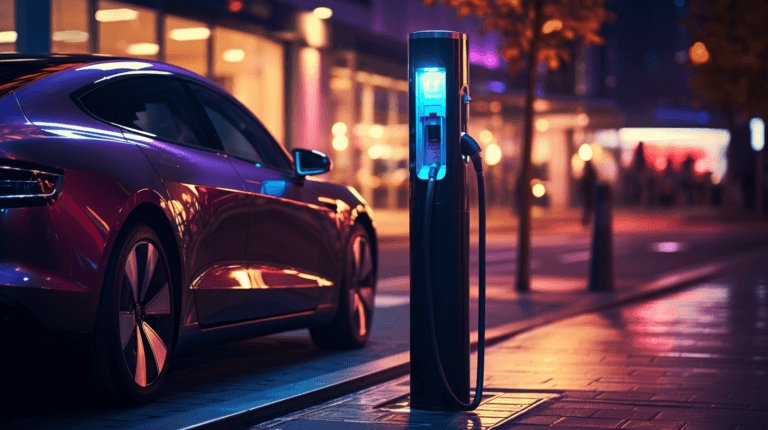2024 EV Industry Growth Trends
What are the 2024 EV industry growth trends? New analysis from the Versinetic team reveals the top 3 developments set to shape electric vehicle adoption this landmark year. Our EV industry analyst, Julian Skidmore, takes us through the predictions…
The electric vehicle industry saw monumental growth in 2023, but some concerns remain about widespread adoption.
Will economic troubles derail the EV boom? Can automakers meet demand as consumers switch to electric faster than expected?
Looking ahead, we’ve have identified key trends that will continue propelling the industry forward. As momentum builds, 2024 is positioned to be a watershed year for electric mobility.
EV sales stay strong despite economic challenges
The first of our 2024 EV industry growth trends – bullish electric vehicle sales.
Our analysis shows EV sales will keep climbing in 2024, potentially increasing 50-70% year-over-year. This continued growth is projected even with consumers facing economic hurdles like high energy bills and rising costs of living.
In our view, near-term economic troubles will only temporarily slow, not stop, the EV transition. Once the current shocks stabilise, the core factors fueling EV adoption will persist. Government policies supporting EVs also provide momentum in many key markets.
The UK is one market where political change could accelerate EV sales. A new administration would likely prioritise EVs to meet emissions-reduction targets. The previous government had cut subsidies and floated new taxes, sparking uncertainty. Policy support would quickly restore consumer confidence.
In addition, once this economic crisis passes, buyers will refocus on EVs’ long-term fuel savings. Energy security and climate impacts also favour EVs over gas vehicles. More affordable EV models due to launch will further boost sales by 2024.
In summary, economic fluctuations may slow but not derail the EV shift. Analysts agree that the fundamentals remain strong. Therefore, we expect EV sales growth to continue at a 50–70% annual pace amidst current headwinds.
Battery electric vehicles outpacing hybrids in sales
We predict that battery electric vehicles (BEVs) will consistently outsell hybrid electric vehicles (HEVs) each month going forward. This shift officially began in January 2023, establishing BEVs as the second-highest-selling powertrain after mild hybrid petrol cars.
BEV sales have surged in recent years, while HEV growth has stagnated. This trend will intensify in 2024, with total BEV sales potentially jumping over 70% as more affordable options launch.
Meanwhile, HEVs have minimal room to gain market share given their low starting point. Expanding BEV sales will increasingly displace petrol and diesel vehicles too. Experts predict BEVs could capture an additional 4% of total auto sales next year.
As the BEV lineup diversifies and prices keep falling, consumers seem poised to switch from petrol faster than expected. For example, Volvo ceasing diesel car production in 2023 signals similar moves by other automakers. Declining diesel will free up more share for BEVs.
Battery-electric vehicles are on track to dominate the high-growth EV segment moving forward. With BEV sales rising by over 70% in 2024, they will solidify their ranking as the number two powertrain overall. Accelerating BEV adoption directly cuts into petrol and diesel, signalling the imminent decline of internal combustion engine vehicles.
Fighting anti-EV falsehoods becomes critical
The rapid rise of electric vehicles faces a major obstacle: the spread of misinformation on social media and other platforms. EV myths can easily go viral online, sowing public doubts that hinder adoption.
Unfortunately, fact-checking struggles to debunk false narratives as quickly as they spread. More troubling is that misinformation peddlers have concocted conspiracy theories to undermine fact-checkers’ credibility.
As a result, the EV industry will likely make combatting anti-EV rhetoric a top priority in coming months. More advanced technological solutions are imperative to promote truth and counter falsehoods. Failure to control misinformation could significantly slow the EV transition.
Some compare the EV shift to the societal impact of the printing press centuries ago. What enabled positive outcomes back then was developing better filters to handle the information influx. Similarly, innovative systems today that prioritize factual EV narratives can help manage this challenge.
Specifically debunking myths about grid capacity is crucial. Grid experts have prepared for years for more EVs; the capacity exists but requires proper communication to counter lingering falsehoods.
Ultimately, we believe that misinformation threatens to delay EV adoption. However, proactive efforts by industry and policymakers can provide correctives and slow the spread of false narratives.
Making this battle a priority will keep EV growth on track through 2024 and beyond.

Julian Skidmore is Versinetic’s EV Industry Analyst.
He has a Computer Science degree from UEA and an MPhil in Computer Architecture from Manchester University, as well as over 20 years of experience in embedded systems development.
As a senior software engineer, Julian has worked on EV charging and V2G projects, and has also co-authored EV-related articles for the electronics industry press.
Julian is a proponent of the zero-carbon society and a Guardian News ‘climate hero’. He has owned a battery EV for over two years, has investments in wind farm cooperatives, and has a 4KW domestic solar PV installation.



